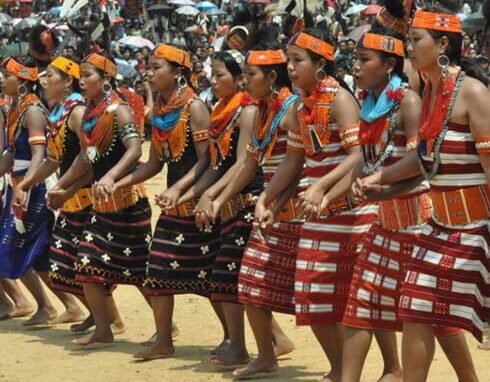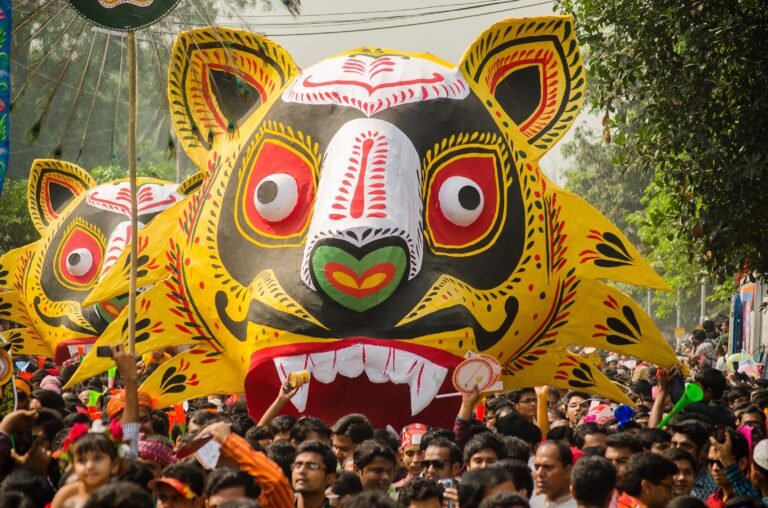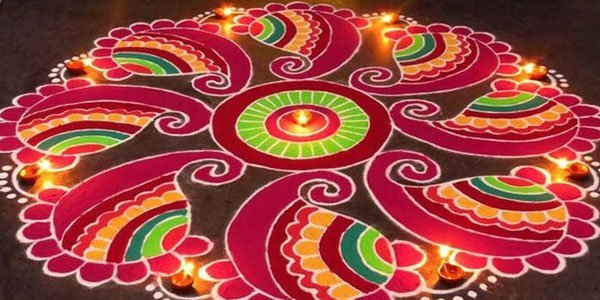Chronos, Kairos and Aion are the three deities of time, events and epic destinies. Here is the multi-religious and multicultural calendar!
Find us on our website Mythology and Legend, on Facebook and on instagram !

The schedule in brief from D-2 to D+5
- April 13, 2025, : Vaisakhi
- April 14, 2025, : Bihu
- April 14, 2025, : Pana Sankranti
- April 14, 2025, : Pohela Boishakh
- April 14, 2025, : Puthandu
The complete interactive calendar
Holidays of the month
| Mymonday | Killtuesday | Wednesdaywednesday | ThuThursday | Frifriday | Satsaturday | Sunsunday |
|---|---|---|---|---|---|---|
31March 31, 2025 |
1April 1, 2025●●(2 events) Aoling FestivalApril 1, 2025  Today, the Konyak people of Nagaland (northeast India) celebrate Aoling. This ancestral tradition prepares hunters and farmers for the coming season. It is also an opportunity to pray to the spirits and ask for their generosity with the help of animal sacrifice. #mythology #myth #legend #calendar #April 1st #Nagaland #Aoling #Konyak Monyu FestivalApril 1, 2025  Today, the Phom people of Nagaland in northeast India celebrate Monyu. This festival lasts more than a week and is an opportunity to honor the renewal of the spirits of spring. Many activities take place on the different days of the festival such as harvests, meals, dances. #mythology #myth #legend #calendar #April 1st #phom #nagaland #inde #monyu | 2April 2, 2025 | 3April 3, 2025 | 4April 4, 2025 | 5April 5, 2025 | 6April 6, 2025 |
7April 7, 2025 | 8April 8, 2025 | 9April 9, 2025 | 10April 10, 2025 | 11April 11, 2025 | 12April 12, 2025 |
13April 13, 2025●(1 event) VaisakhiApril 13, 2025  Today, Sikhs celebrate Vaisakhi, the harvest festival. It is tradition to start harvesting after this festival. #mythology #myth #legend #calendar #April 13 #April 14 #aisakhi |
14April 14, 2025●●(4 events) BihuApril 14, 2025  Today, the Assamese community (in the north of Bengal, former Assam) celebrate Bihu, the new year. Linked to the seasons and agricultural cultures, it is celebrated throughout the country, with traditional dances marking the celebrations. #mythology #myth #legend #calendar #April 14 #assam #bihu Pana SankrantiApril 14, 2025  Today in Odesha (India) the New Year Pana Sankranti takes place. The festival is celebrated with visits to the temples of Shiva, Shakti or Hanuman. People bathe in rivers or in major pilgrimage centers. Communities attend mela (fairs), take part in traditional dances or acrobatic shows. #mythology #myth #legend #inde #odesha #calendar #April 14 Pohela BoishakhApril 14, 2025  Today, Bengali people celebrate the new year, Pohela Boishakh. Probably of Mughal origin, processions, fairs and family meals mark the transition to the new year. #mythology #myth #legend #calendar #April 14 #bengal PuthanduApril 14, 2025  Today, the Tamils (Sri Lanka and South India) celebrate the new year, Puthandu. It is an important day, considered to be when Brahma, the Creator, started the creation of the universe. On this festive morning, there is a ritual bath, followed by a religious ceremony which brings together the members of the family. #mythology #myth #legend #calendar #April 14 #puthandu #SriLanka | 15April 15, 2025 | 16April 16, 2025 | 17April 17, 2025 | 18April 18, 2025 | 19April 19, 2025 | 20April 20, 2025 |
21April 21, 2025 | 22April 22, 2025 | 23April 23, 2025 | 24April 24, 2025 | 25April 25, 2025 | 26April 26, 2025 | 27April 27, 2025 |
28April 28, 2025 | 29April 29, 2025 | 30April 30, 2025 |
1May 1, 2025●(1 event) Moatsu MongMay 1, 2025  Today, the Ao Nagas of Nagaland celebrate Moatsu Mong. The festival takes place after the fields have been cleared, the weeds have been thrown away and the seeds are sown. People dance and sing, feast and pray. The festive spirits are complete with competitions where the best rice wine is rewarded. #mythology #myth #legend #calendar #May 1 #Nagaland #AoNagas #MoatsuMong | 2May 2, 2025 | 3May 3, 2025 | 4May 4, 2025 |
Multicultural and multi-religious almanac
An almanac is a calendar showing the main dates of the calendar, the religious holidays, bearing ephemerides such as the phases of the moon or the duration of the days (lunar and solar calendars).
A calendar is a system for marking dates according to time. Such a system was invented by men to divide and organize time over long periods. The observation of the periodic phenomena of the environment in which they lived — such as the daily movement of the shadow, the return of the seasons or the lunar cycle — served as the first references for organizing the agricultural, social and religious life of societies.
The calendar used today in most of the world is the Gregorian calendar. In everyday language, an ephemeris designates what happens daily; the ephemeris of the day is the list of the significant events of this day.